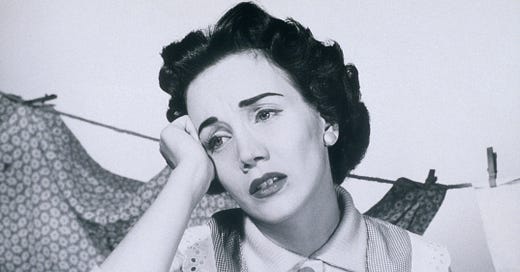This week from 1/24-1/26, Barnes and Noble is running a sale on preorders for This American Ex-Wife. Members can use code PREORDER25. Premium members get an additional 10% off.
Please preorder my book and make it successful so that together, we can make Brad Wilcox of the Insitute for Family Studies very, very mad.
In 1967, as divorce rates in America we…




